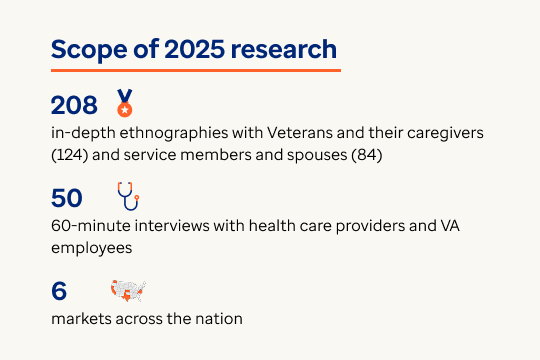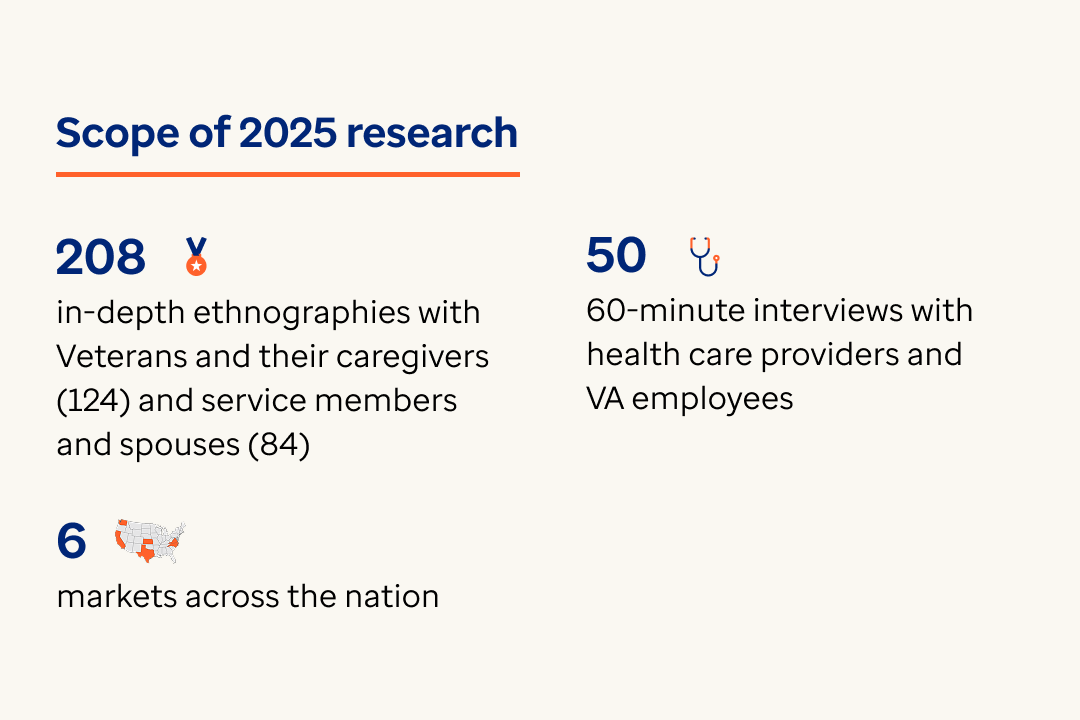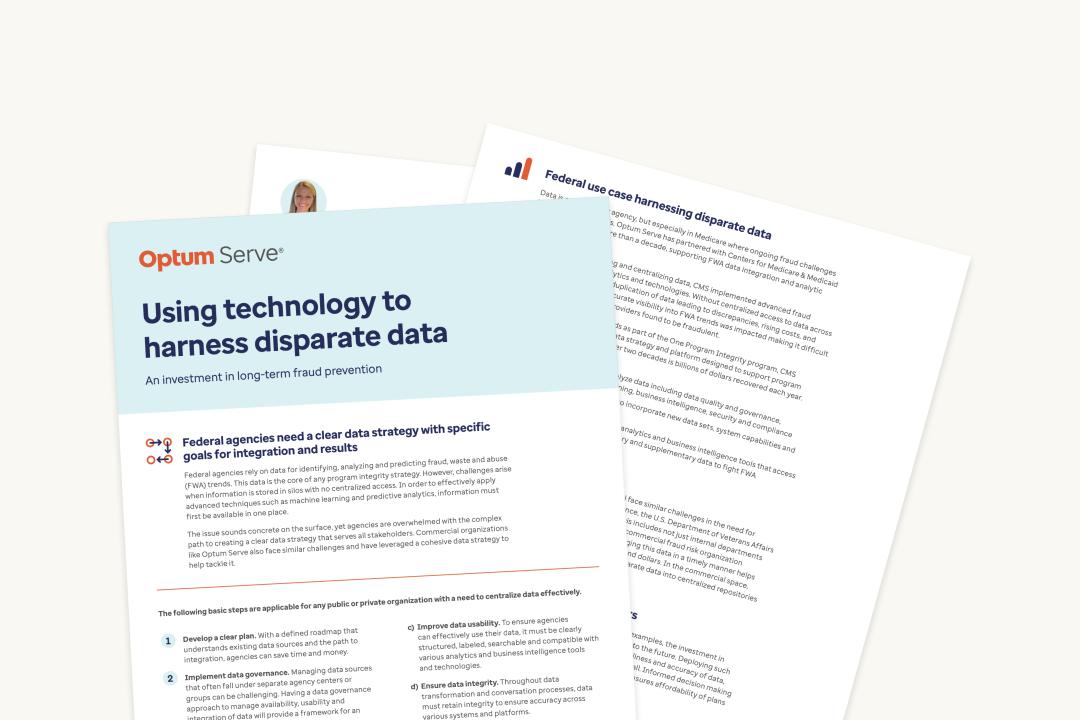Understanding the health care experience of Service Members, their families and Veterans
Optum Serve set out to validate and deepen our understanding of the experiences and challenges that Service Members, their families, and Veterans have when seeking and receiving health care.
We wanted to learn how the system can provide the necessary support through beneficiary-centered solutions. These stories highlight why it’s important for the system to be ready to support — in the right way and at the right moment.


Scope of 2025 research
- 208 in-depth ethnographies with Veterans
and their caregivers (124) and service members and spouses (84) - 50 60-minute interviews with health care providers and VA employees
- 6 markets across the nation
Foundational research questions
- What is the mindset and world of these families?
- What are the challenges/barriers military families experience in maintaining their overall physical and mental health? Well-being? Resiliency?
- What are the challenges/barriers military families experience with their health care today?
- How do they access/interact with TRICARE? What would be ideal?
- What do they use as resources today and what would be ideal? How could they be better supported?
- How does the feedback today compare to the work conducted previously? What has changed and why?
- What is the mindset and world of this consumer?
- What are the challenges/barriers they experience?
- How do they access/interact with health care, and specifically VA/TRICARE or the Military Health System?
- What is the current experience with the health care system? How does that compare to what we heard previously?
- What do they use as resources today and what would be ideal? How could they be better supported?
- What is the current state of Veterans’ and military families’ use of technology, and how can Optum Serve continue to support them in their digital journey?
- How does the feedback today compare to the previous research? What has changed and why? Are the cohorts the same or do they need to be updated?
- How are PACT Act Veterans similar to or different from other Veterans?
- What gaps exist between health care provider/staff perspectives and Veteran perspectives?
Our research highlighted 3 key military care concerns
Key challenge
Many may still face obstacles to seeking care during service
Significant strides have been made to make military care more accessible. However, common barriers still exist:
- It's normalized to focus on the mission and push through acute care needs, so recognizing when they do need treatment and finding time to seek care can be difficult, especially if in remote or austere environments.
- For both physical and mental health needs, some still worry about the impacts to their careers.
- Some feel they are unlikely to get treatment beyond over-the-counter medications, so may not feel it's worth the time to seek more care.

Key challenge
Newly discharged Veterans find it challenging to navigate the civilian world and health care options
Veterans often encounter barriers when exiting a life of service. These problems arise when:
- Transitioning out of a structured environment where many decisions are made on their behalf. Dormant medical needs may rise to the surface and require attention.
- Having to navigate new systems on their own, from health care to employment to housing.
- Despite having had out-processing classes, many are unsure what resources, benefits or guidance are most important until face-to-face with post-transition challenges.

Key challenge
Veterans face obstacles navigating benefits and services
Those with the most needs are not always able to access adequate support. It often depends on:
- Circumstances and challenges during service
- Circumstances and challenges before and after service
- Access to knowledge and information
- Ability and likelihood to self-advocate
Many opportunities exist for VA and community care to adapt its approach to serving the Veteran lifestyle and health care journey to optimize the care provided and support our nation’s heroes.

Product information and resources
Related healthcare insights

Guide
Improve continuity of care by reducing variation in practice for service members transitioning to Veteran status.


Guide
HEALS is a data analytics solution that highlights where and how inequities occur within a community, state or a health plan’s member population.
